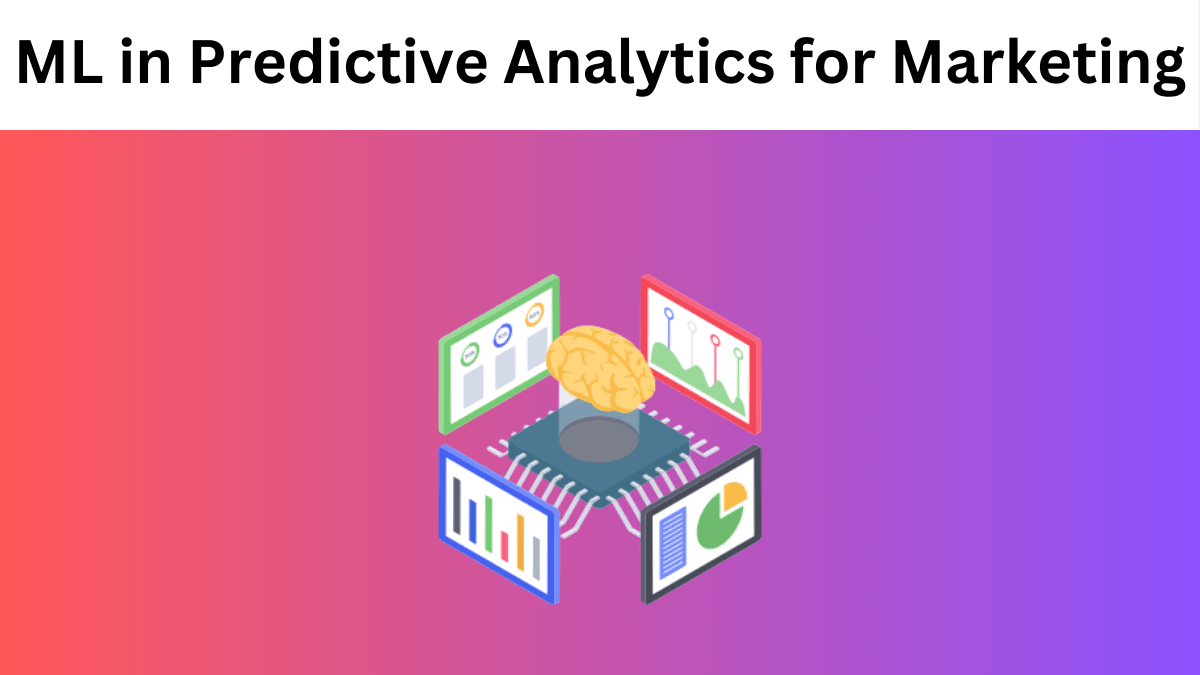In today’s data-driven world, businesses are leveraging advanced technologies to gain insights and drive strategic decisions. One of the most impactful technologies in this domain is machine learning (ML). By harnessing the power of machine learning, organizations can significantly enhance their predictive analytics capabilities, especially in the realm of marketing. This article explores how machine learning is revolutionizing predictive analytics in marketing, providing businesses with unparalleled insights and competitive advantages.
The Evolution of Predictive Analytics in Marketing
Predictive analytics involves using historical data to make informed predictions about future outcomes. In marketing, this means forecasting customer behavior, sales trends, and the effectiveness of campaigns. Traditionally, marketers relied on basic statistical methods and intuition to predict future trends. However, the advent of machine learning has transformed this landscape, enabling more accurate and actionable predictions.

Machine Learning and Its Role in Marketing
Machine learning is a subset of artificial intelligence (AI) that enables systems to learn and improve from experience without being explicitly programmed. In marketing, ML algorithms can analyze vast amounts of data, identify patterns, and make predictions with a level of accuracy that surpasses traditional methods. Here are some key areas where machine learning is making a significant impact:
Customer Segmentation
Understanding and segmenting customers is crucial for effective marketing. Machine learning algorithms can analyze customer data, including demographics, purchase history, and behavior, to identify distinct segments. These segments can then be targeted with personalized marketing campaigns, increasing engagement and conversion rates.
Predictive Customer Lifetime Value (CLV)
Predicting the lifetime value of a customer is essential for allocating marketing resources efficiently. Machine learning models can analyze past customer interactions and transactions to predict future spending patterns. This helps marketers identify high-value customers and tailor their strategies to maximize long-term revenue.

Churn Prediction
Customer retention is as important as acquisition. Machine learning algorithms can predict which customers are likely to churn based on their behavior and engagement levels. By identifying at-risk customers early, businesses can implement retention strategies, such as personalized offers and targeted communication, to reduce churn rates.
Personalized Marketing
Personalization is a key driver of marketing success. Machine learning enables real-time personalization by analyzing customer data and predicting preferences. In cases where personalization involves AI-driven content or interactions, exploring prompt engineering examples can help teams design more context-aware and effective AI prompts. For example, ML algorithms can recommend products, content, or promotions based on individual browsing history and behavior, enhancing the customer experience and driving sales.
Implementing Machine Learning in Marketing
To leverage machine learning for predictive analytics in marketing, businesses need to follow a structured approach:
Data Collection and Preparation
The foundation of any machine learning model is data. Businesses need to collect relevant data from various sources, such as customer interactions, sales transactions, social media, and web analytics. This data must be cleaned and preprocessed to ensure accuracy and consistency.

Choosing the Right Algorithms
Different machine learning algorithms are suited to different types of predictions. For instance, decision trees, random forests, and neural networks are popular choices for predictive analytics in marketing. Selecting the right algorithm depends on the nature of the data and the specific predictive task.
Training and Testing the Model
Once the data is prepared and the algorithm is chosen, the next step is to train the model. This involves feeding the algorithm with historical data so it can learn patterns and relationships. The model is then tested on a separate dataset to evaluate its accuracy and performance.
When considering the development of these machine learning models, it’s important to understand how much does it cost to make a website that integrates advanced ML features. The costs can vary significantly based on the complexity of the models and the amount of data to be processed.
Deployment and Monitoring
After successful testing, the model can be deployed to make predictions on new data. Continuous monitoring and updating of the model are essential to ensure it remains accurate and relevant over time.
Machine Learning in Marketing
Several companies have successfully integrated machine learning into their marketing strategies, yielding impressive results. Here are a few examples:
Netflix: Personalized Content Recommendations
Netflix uses machine learning algorithms to analyze viewing history and preferences of its users. By doing so, it can recommend personalized content that aligns with individual tastes, enhancing user satisfaction and retention. This personalized approach has been a key factor in Netflix’s growth and success.
Amazon: Predictive Product Recommendations
Amazon leverages machine learning to provide personalized product recommendations to its customers. By analyzing purchase history, browsing behavior, and even wish lists, Amazon’s ML algorithms predict what products a customer is likely to buy next. This not only improves the shopping experience but also boosts sales and customer loyalty.
Starbucks: Predictive Analytics for Customer Retention
Starbucks uses machine learning to predict customer behavior and preferences. By analyzing transaction data and customer interactions, Starbucks can offer personalized promotions and rewards through its mobile app. This predictive approach helps in retaining customers and increasing their lifetime value.
Challenges and Future Trends
While machine learning offers immense potential for predictive analytics in marketing, it also presents several challenges. Data privacy and security are major concerns, as businesses must ensure that customer data is protected and used ethically. Additionally, the complexity of ML algorithms requires skilled professionals to develop and maintain them, which can be a barrier for smaller businesses.
However, the future of machine learning in marketing looks promising. As technology continues to evolve, we can expect more sophisticated algorithms and tools that make predictive analytics even more accessible and effective. One emerging trend is the integration of machine learning with other advanced technologies, such as natural language processing (NLP) and computer vision, to gain deeper insights from unstructured data.

Outsourcing Machine Learning Development
For many businesses, developing and maintaining machine learning models in-house can be challenging due to the technical expertise and resources required. This is where the option to outsource web development, including ML applications, becomes valuable. By partnering with specialized firms, businesses can access cutting-edge technology and expertise without the need for extensive in-house capabilities. This allows companies to focus on their core competencies while still leveraging the benefits of machine learning for predictive analytics in marketing.
Conclusion
Machine learning is transforming predictive analytics in marketing, enabling businesses to gain deeper insights, personalize customer experiences, and make data-driven decisions. By leveraging ML algorithms, companies can enhance customer segmentation, predict customer lifetime value, reduce churn, and deliver personalized marketing campaigns. While challenges exist, the future of machine learning in marketing is bright, with continuous advancements promising even greater capabilities. For businesses looking to stay competitive, investing in machine learning and considering options like outsourcing web development for ML applications can be a strategic move towards achieving marketing excellence.


Comments are closed